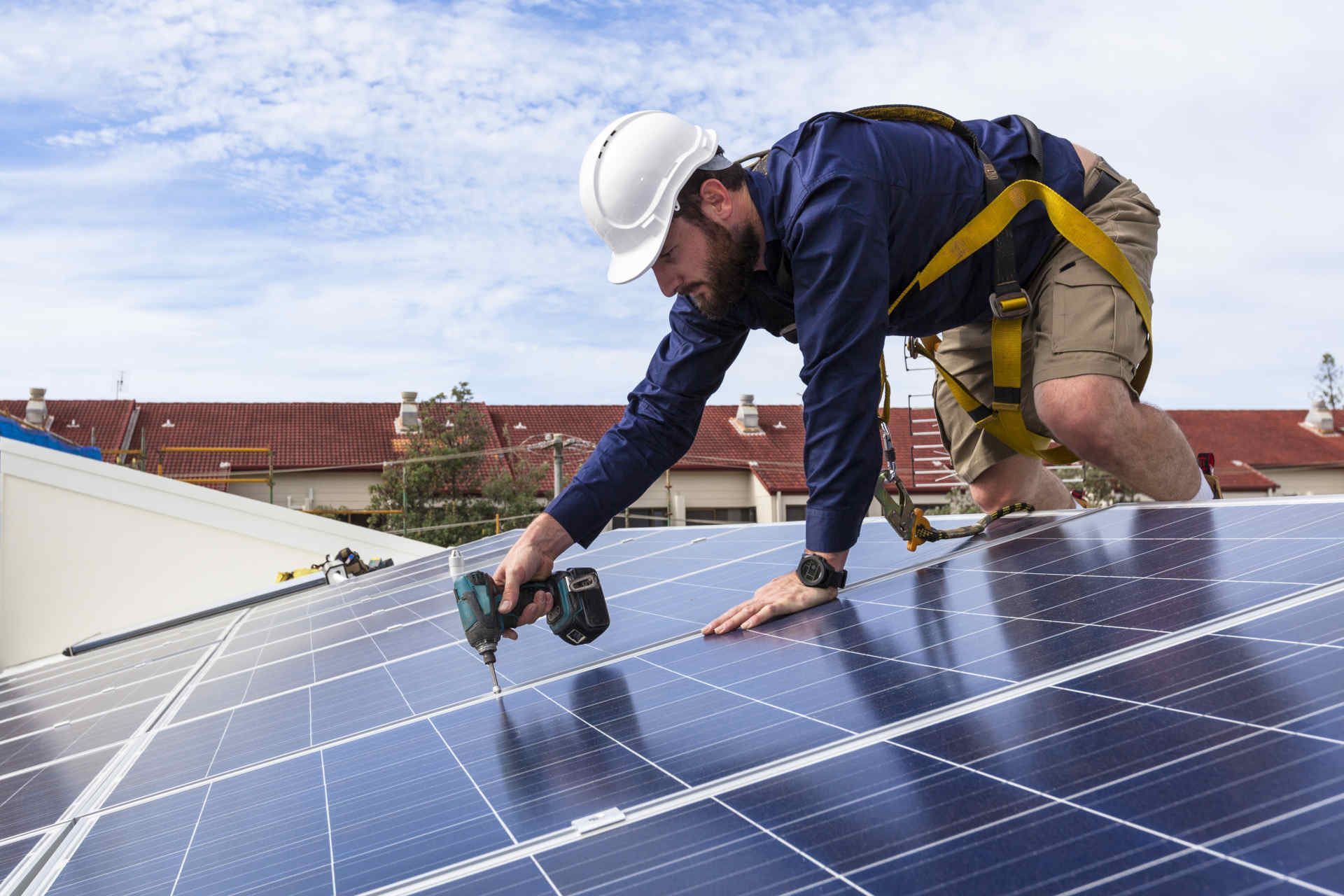Blog>Expert Advice>Flooring buying guide: Choosing the best flooring for your home
Last updated: 21 October 2024
Flooring buying guide: Choosing the best flooring for your home
This flooring buying guide will help you to select the perfect flooring for every room. Taking into account style, maintenance, suitability, and cost.

There's much to consider when selecting the best flooring for your home.
Different rooms have different demands in terms of practicality and durability.
Your flooring also needs to reflect your home's style and the amount of maintenance you're able to commit to.
And last but not least, cost plays a major role in the decision-making process too. So let's get into it...
How to choose the best type of flooring for your needs
The first step in choosing the right flooring is understanding the requirements of each room. Having a clear idea of how much traffic, moisture, and wear and tear the flooring will face will help you narrow your choices.
Living rooms and bedrooms: Homeowners often prefer cosy, warm, and comfortable flooring in these rooms, such as carpet
Kitchens and bathrooms: These wet environments benefit from moisture-resistant and durable flooring, such as vinyl or tile
Hallways: High-traffic areas of the home need hard-wearing and easy-to-clean floors, such as laminate or wood
Tip: Measure up how much flooring you require in m². That way, you can more easily gauge which types of flooring are best suited to your available budget.
See the tradespeople we've checked and recommend for your job
Popular types of flooring
Several types of flooring are available, including many environmentally friendly options such as bamboo, cork, and reclaimed wood.
There's something for every style, budget, and need, but to help keep things simple, we'll focus on five of the most popular flooring types. This includes carpet, wood, laminate, vinyl, and tile.
In this section, you'll find an overview of the pros and cons of each type of flooring, where they're best suited, and the average price per m².
1. Carpet
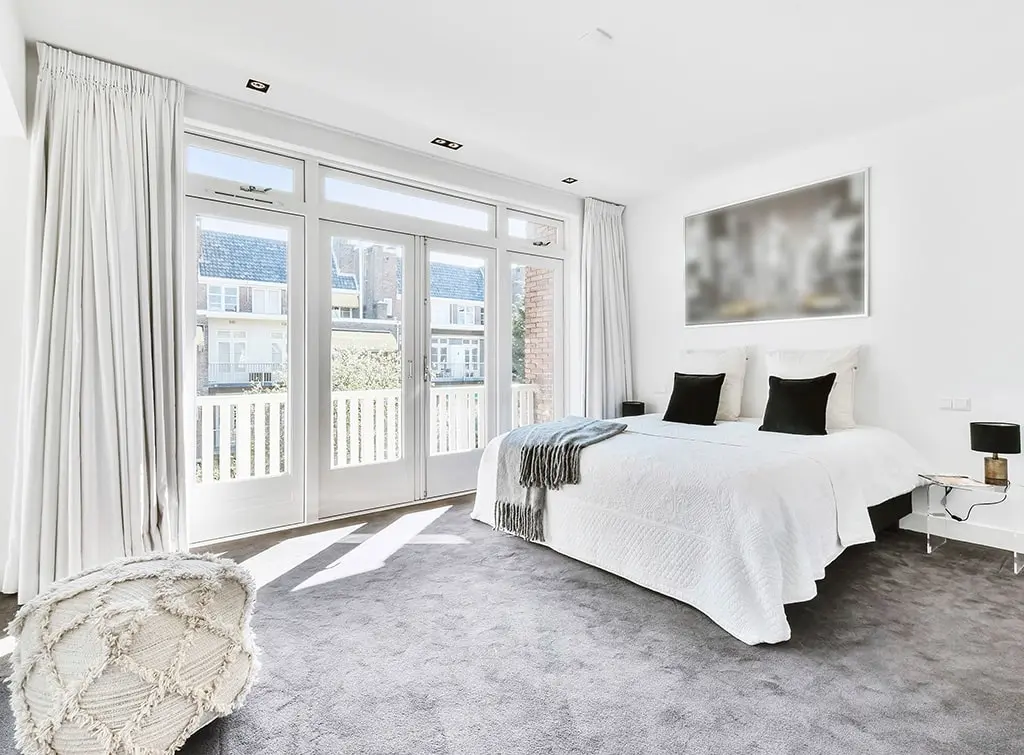
Pros: Soft and warm underfoot, provides good insulation, reduces noise, available in a range of colours and styles
Cons: Can stain easily, prone to wear and tear in high-traffic areas, and needs regular vacuuming and cleaning
Suitability: Ideal for low-traffic areas such as bedrooms or a living room
Cost:Expect to pay between £6 - £60 per m², with premium carpets costing upwards of £80 per m²
Budget tip: Synthetic materials such as nylon and polyester tend to be more budget-friendly than wool
2. Wood flooring
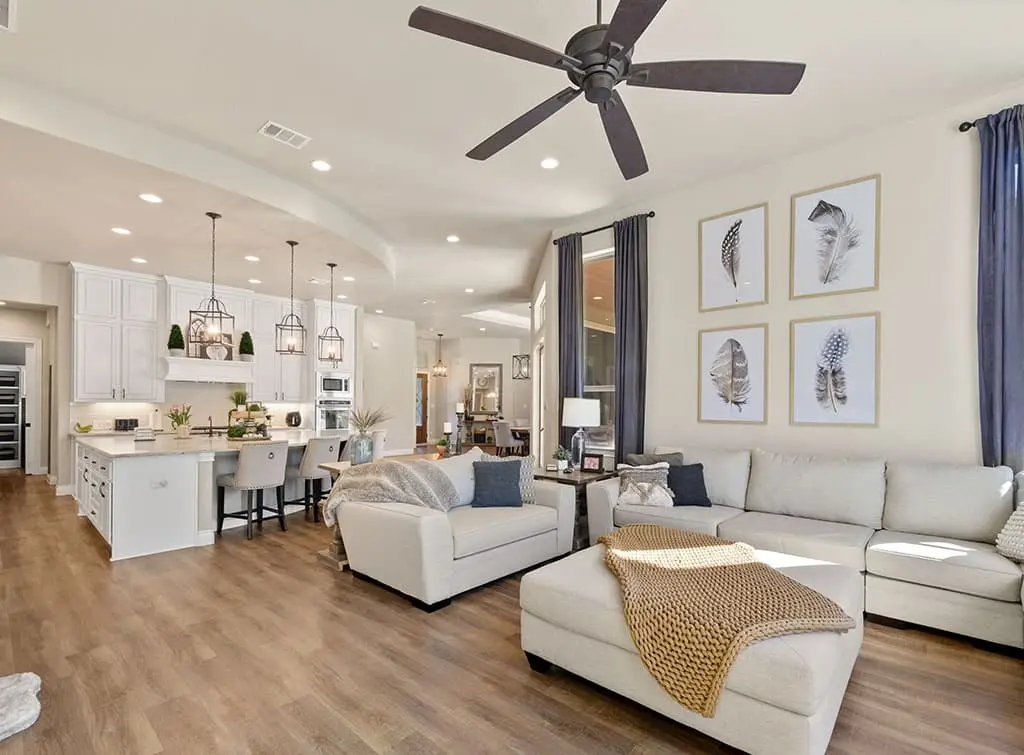
Pros: Timeless and versatile - it can be used all through the house - and can add value to your home
Cons: Susceptible to scratches, dents, and water damage (although engineered wood is more forgiving than solid wood), and requires regular maintenance
Suitability: A popular choice for living rooms, hallways, kitchens, and bedrooms
Cost: Prices average around £35 per m² for engineered wood, up to around £80+ per m² for high-end hardwood flooring
Budget tip: Laminate or wood-effect vinyl can offer a similar look for less
3. Laminate flooring
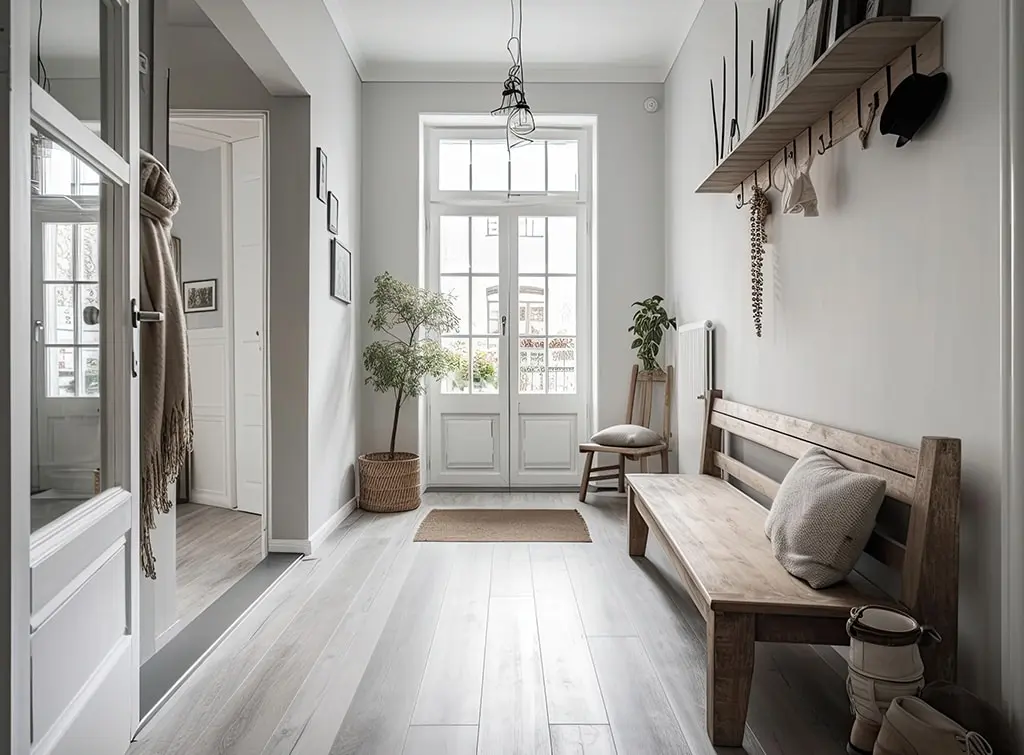
Pros: Inexpensive and easy to install; laminate flooring is a good option for those who want the look of wood or tile but without the high price tag
Cons: Not as durable as vinyl or hardwood and can swell or warp with water exposure; it also feels less authentic underfoot than real wood or tile
Suitability: Ideal for most rooms including kitchens and hallways
Cost: Laminate flooring tends to cost in the region of £20 - £60 per m²
Budget tip: For better durability, make sure to choose a moisture-resistant option if using laminate in a kitchen
4. Vinyl flooring
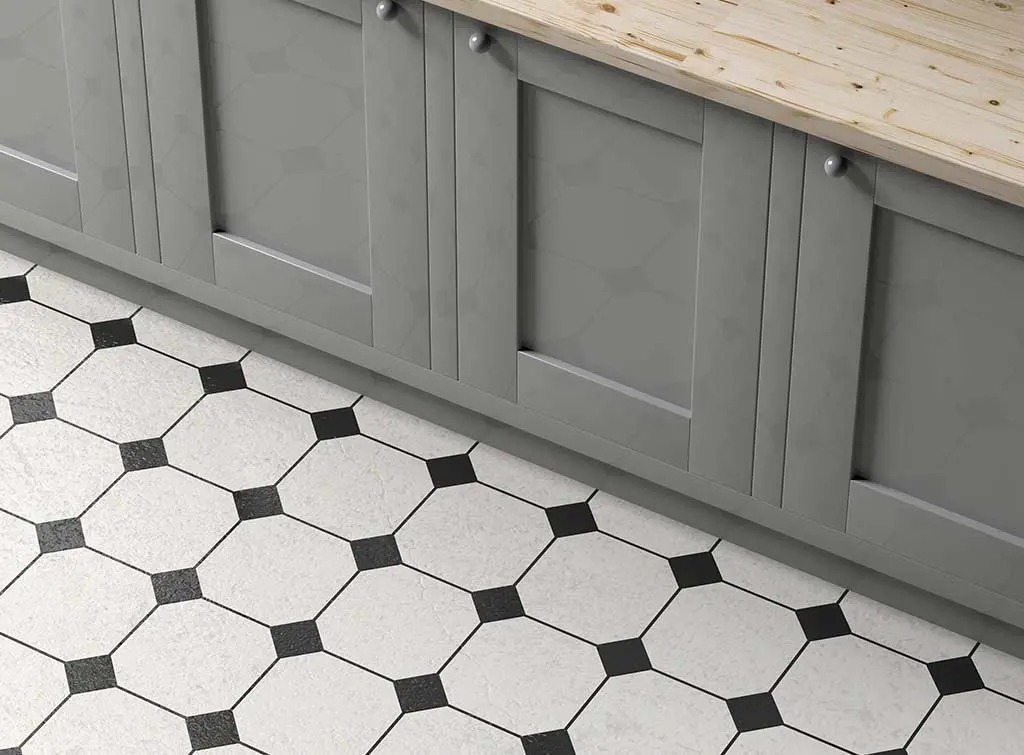
Pros: Vinyl is easy to clean, cost-effective, and water-resistant, and available in various styles such as wood, stone, or tile, offering versatility
Cons: Can dent or scratch with heavy furniture or high heels; cheaper options can fade or peel over time
Suitability: Perfect for kitchens and high-traffic areas due to its durability and soft feel underfoot
Cost: Luxury Vinyl Tile (LVT) typically costs between £20 - £50 per m² depending on the quality
Budget tip: Where possible, opt for thicker vinyl (3mm+) for increased durability and comfort
5. Tile
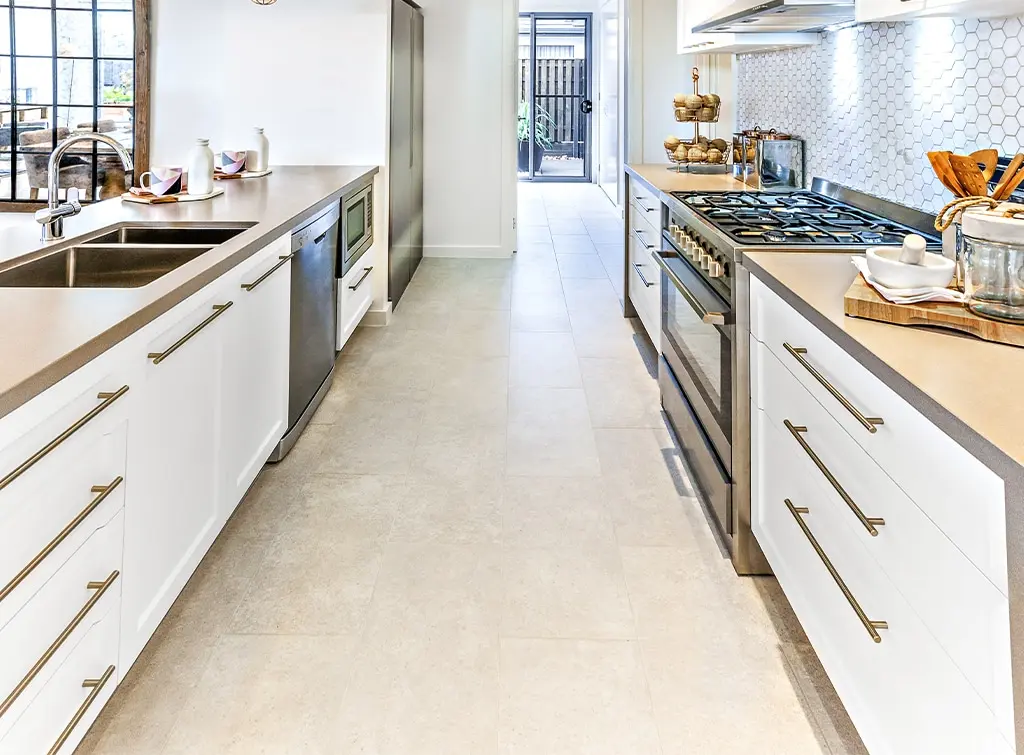
Pros: Timeless, hard-wearing, easy to clean, versatile, and stain and water-resistant. Tiles add value to a property and are available in a range of styles including ceramic, porcelain, and natural stone such as slate or limestone
Cons: Can be cold and hard underfoot, grout may need to be cleaned or regrouted over time
Suitability: A popular choice for modern and traditional homes, especially in bathrooms, kitchens, entrance hallways, and bootrooms
Cost: Tiled flooring starts at around £20 per m² upwards of £400+ per m² depending on the type of tile you select
Budget tip: Ceramic and porcelain tiles are generally more affordable than natural stone tiles such as slate
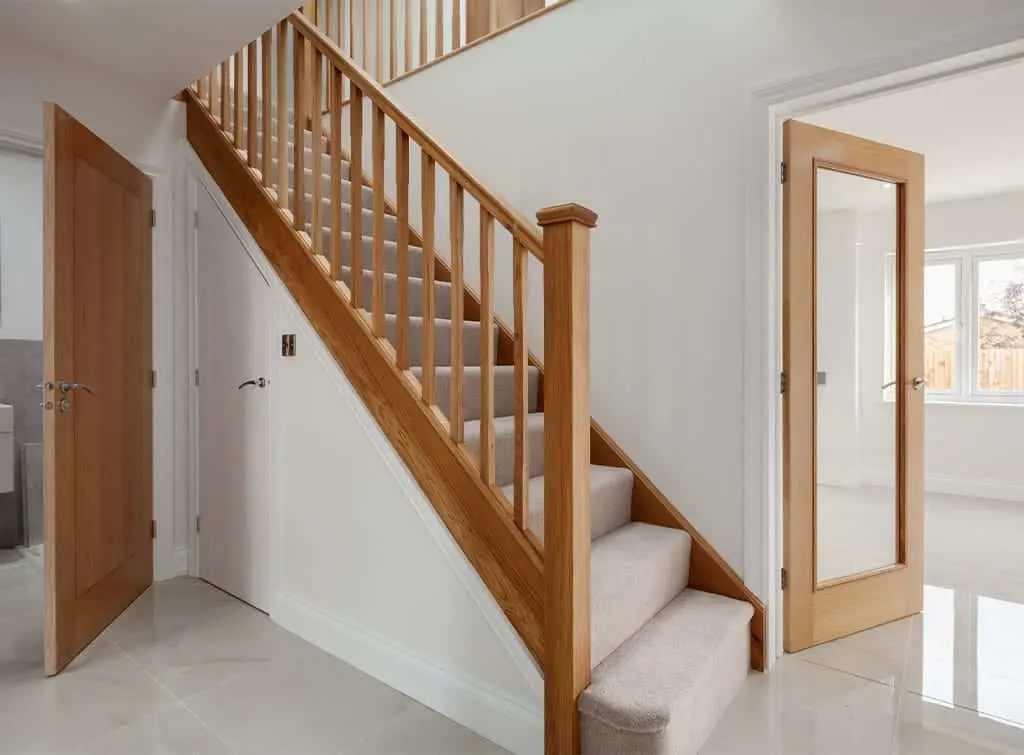
Average flooring costs
When budgeting for your flooring project, you'll need to factor in the cost of materials, labour, plus additional costs. We'll break these down, below:
Materials
Carpet:The average price for carpet is around £6 - £60 per m²
Hardwood: On average, expect to pay around £35 per m² for engineered wood and up to around £80+ per m² for high-end hardwood flooring
Laminate: The average cost of laminate flooring is £20 - £60 per m²
Vinyl: Luxury Vinyl Tile (LVT) costs between £20 per m² - £50 per m² depending on the quality
Tiles:Tiled flooring starts at around £20 up to around£400+ per m² depending on the type of tile you select
There's huge variance in price within each flooring type. Speak with an experienced flooring specialist to understand which options are best suited to your needs.
Labour
Depending on your floor fitter's experience, their location, and the complexity of the work, expect to pay anything between £7 - £10 per m² for carpet fitting up to around£50 per m² for floor tile installation.
Additional costs
Sometimes, a few additional components are needed when laying new flooring so it's important to know what to expect to help budget accordingly. For example:
Floor levelling:Average cost £10 - £15 per m²
Staircase levelling or repair:Average cost ranges from £45 - £90
Adjusting doors:Average cost £20 - £30 per door
Underlay:Average cost £8 - £12 per m²
Be sure to obtain a selection of quotes from local floor fitters and ensure they are itemised so you can easily see what's included and compare costs, like-for-like.
Contact or pay a trade through Checkatrade and you’re covered by our 12-month guarantee of up to £1,000*

Do you need help with the rest of your home decor?
At Checkatrade, we help to connect homeowners with quality tradespeople across the UK.
So if your flooring project is part of a wider home improvement, such as redecoration or underfloor heating, we can help. Enter your postcode below to search for the trades you need.
See the tradespeople we've checked and recommend for your job
Key takeaways
While hardwood flooring and natural stone tiles sit at the top end of the price bracket, there's a huge variance in price among other flooring materials depending on the type and quality you choose.
If you're set on the look of hardwood or natural stone but your budget won't stretch, consider laminate or vinyl, which can mimic the look for a fraction of the price.
Finally, consider the room your flooring will go in and the needs it must fulfil. For example, a cosy carpet is great underfoot in a living room or bedroom, waterproof vinyl is perfect for a bathroom or kitchen, and wood or tile makes for a stylish and hard-wearing option for the entrance hallway.
Head over to our flooring hub for plenty more advice, information, ideas, and guidance to help nail your home flooring project.
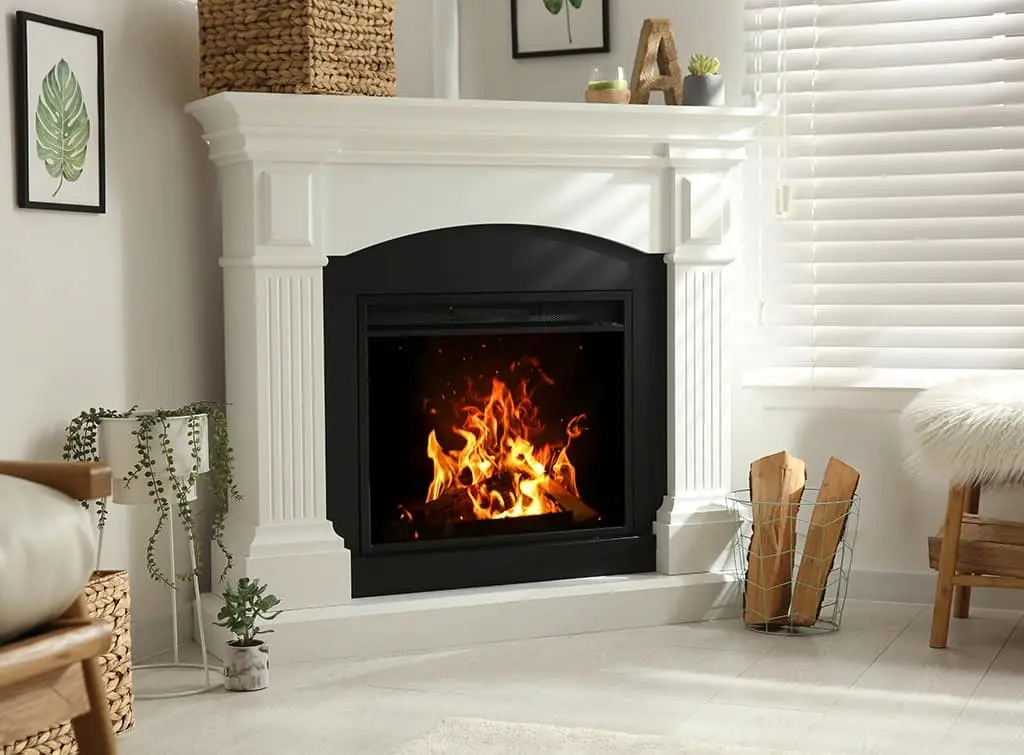
Find a flooring expert in your local area
Ready to find a flooring expert for your home improvement project? Search your postcode to find experienced and reputable flooring specialists (that we've checked and approved) near you.
See the tradespeople we've checked and recommend for your job
See the tradespeople we've checked and recommend for your job

